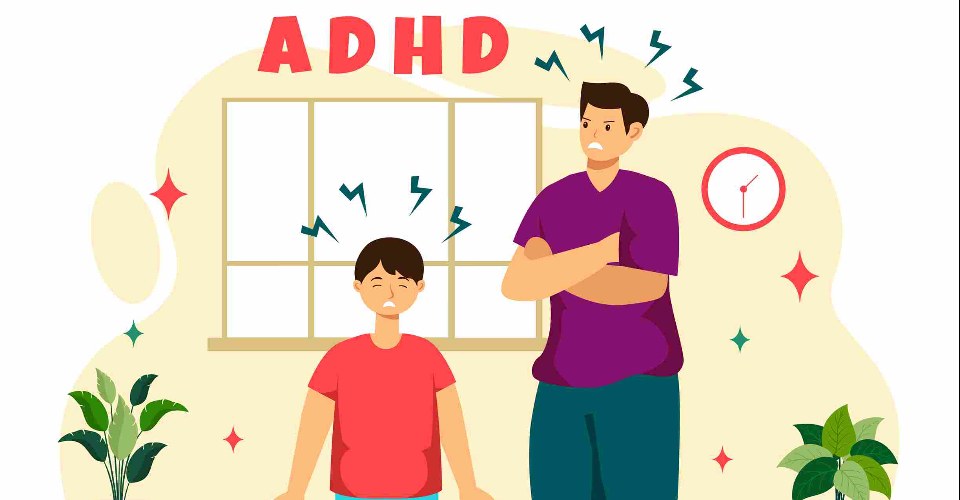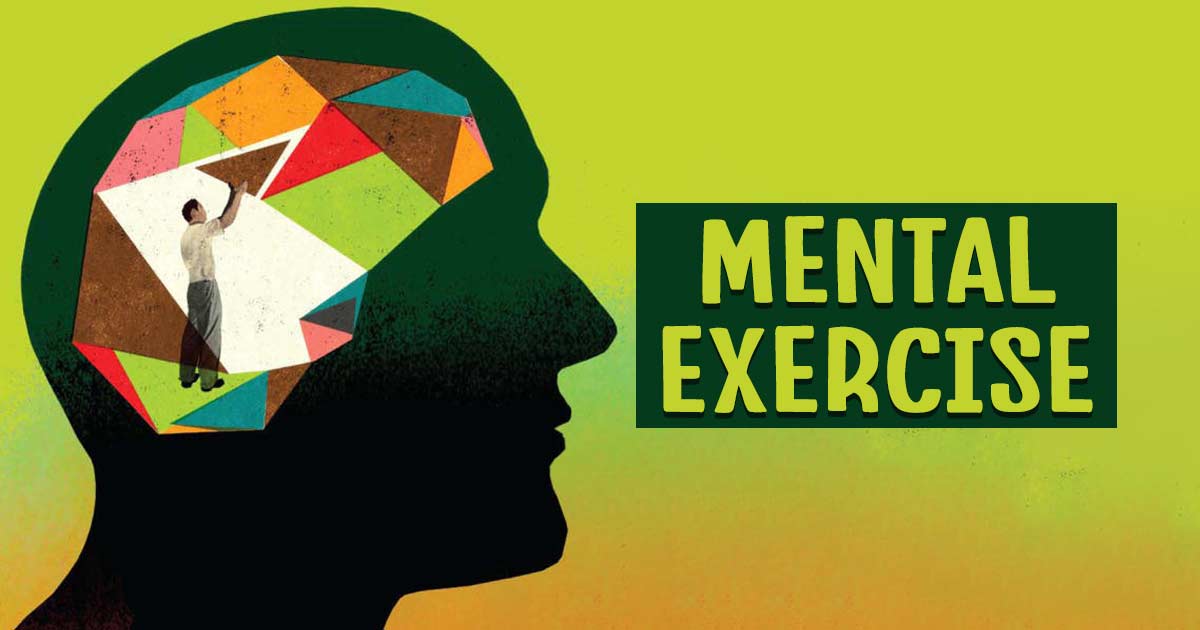Mindfulness is a practice where we intensely focus on being aware of our senses and feelings in that specific moment. It is a state of awareness that promotes our physical and psychological well-being.
What Is Mindfulness?
Mindfulness is about living in the present moment, intensely focusing on what one is sensing and feeling in the moment. It refers to a mental state of awareness that mostly arises through paying attention and being completely engaged in what is happening in our surroundings. To reach this psychological state of mind, an individual needs to non-judgmentally focus on their bodily sensations, surrounding environment, thoughts, emotions, and feelings.
It can also be characterized by a soothing practice that relaxes our mind and body and is extremely beneficial in reducing emotional distress. It is also closely associated with acceptance which implies we are accepting what we are feeling and thinking without judging them. When a person practices mindfulness, their thoughts transform into what they are sensing in that present moment without ruminating about their past or imagining their future.
A 2019 research paper 1 Parmentier, F., García-Toro, M., García-Campayo, J., Yañez, A. M., Andrés, P., & Gili, M. (2019). Mindfulness and Symptoms of Depression and Anxiety in the General Population: The Mediating Roles of Worry, Rumination, Reappraisal and Suppression. Frontiers in psychology, 10, 506. https://doi.org/10.3389/fpsyg.2019.00506 defines mindfulness as “the process by which one attends to present-moment sensations, thoughts, emotions, and experiences in a non-judgmental manner.” This study suggests that this practice is a significant part of treatment for many mental health disorders. Psychologists believe that it has a broad range of positive effects on a person’s overall well-being and also reduces the severity of different symptoms.
It involves guided imagery, different breathing techniques, and other practices that help to relax our mind and body. Many researchers 2 Groves P. (2016). Mindfulness in psychiatry – where are we now?. BJPsych bulletin, 40(6), 289–292. https://doi.org/10.1192/pb.bp.115.052993 agree that it is now considered an increasingly popular therapeutic approach. They have tried out mindfulness-based interventions to treat many mental disorders and observed beneficial outcomes.
Understanding Mindfulness
Every person has to go through a lot of difficulties during the course of their lives. In such situations, most of us spend our precious time daydreaming, problem-solving, planning for our future and thinking about negative consequences. All of these can result in emotional distress for a person. It also increases the risk of experiencing depression, stress, and anxiety. Studies 3 Kelly J. D., 4th (2019). Your Best Life: Managing Negative Thoughts-The Choice is Yours. Clinical orthopaedics and related research, 477(6), 1291–1293. https://doi.org/10.1097/CORR.0000000000000791 have shown that regular mindfulness practice can divert our attention from these kinds of thoughts and it helps us to be in a world that is generally happier and less reactive.
Many psychologists 4 Gibson J. (2019). Mindfulness, Interoception, and the Body: A Contemporary Perspective. Frontiers in psychology, 10, 2012. https://doi.org/10.3389/fpsyg.2019.02012 argue that it is about reconnecting with one’s body and the sensations the body experiences. One needs to be intentionally aware and awake to reach this mental state. It is also considered a kind of psychological freedom that occurs when our attention or focus is silent and is not based on any of our points of view. A 2018 research 5 Van Dam, N. T., van Vugt, M. K., Vago, D. R., Schmalzl, L., Saron, C. D., Olendzki, A., Meissner, T., Lazar, S. W., Kerr, C. E., Gorchov, J., Fox, K., Field, B. A., Britton, W. B., Brefczynski-Lewis, J. A., & Meyer, D. E. (2018). Mind the Hype: A Critical Evaluation and Prescriptive Agenda for Research on Mindfulness and Meditation. Perspectives on psychological science : a journal of the Association for Psychological Science, 13(1), 36–61. https://doi.org/10.1177/1745691617709589 has described mindfulness as the moment-to-moment awareness of a person’s present experience without any distraction and judgment. Many may consider it as a human personality trait, but in reality, it is a human state of mind. It not only has numerous positive impacts on our life but also teaches us to live and breathe more mindfully.
Read More About Anxiety Here
Mindfulness vs. Meditation
Mindfulness and meditation are two different terms with two different meanings. But at the same time, they are closely interconnected with each other. According to a recent study 6 Behan C. (2020). The benefits of meditation and mindfulness practices during times of crisis such as COVID-19. Irish journal of psychological medicine, 37(4), 256–258. https://doi.org/10.1017/ipm.2020.38 , these two stress-relieving techniques enhance each other’s benefits as mindfulness strengthens the effects of meditation, and similarly, meditation nourishes the effects of mindfulness. There is also a significant difference between these two – we generally practice meditation on a regular basis for a specific amount of time, while we can apply mindfulness in any type of situation.
Another difference is that mindfulness doesn’t eliminate stress completely rather it teaches us how we can effectively handle or deal with challenging situations and emotional distress caused by them. It also teaches us a better way to react more calmly when we face any kind of stress or hurdles. Meanwhile, meditation provides us a training ground for learning mindfulness.
Read More About Meditation Here
How Does Mindfulness Work?
It effectively works on a person’s body and mind in a variety of ways. It not only helps to change the way we think about our lives but also shapes our ideas and perspectives 7 Crego, A., Yela, J. R., Gómez-Martínez, M. Á., Riesco-Matías, P., & Petisco-Rodríguez, C. (2021). Relationships between Mindfulness, Purpose in Life, Happiness, Anxiety, and Depression: Testing a Mediation Model in a Sample of Women. International journal of environmental research and public health, 18(3), 925. https://doi.org/10.3390/ijerph18030925 . A 2011 study 8 Keng, S. L., Smoski, M. J., & Robins, C. J. (2011). Effects of mindfulness on psychological health: a review of empirical studies. Clinical psychology review, 31(6), 1041–1056. https://doi.org/10.1016/j.cpr.2011.04.006 has shown that it can even change the shape of our brains and modify it with positive thoughts and emotions. This study explains that it allows our brain to move from high-frequency waves to low-frequency waves which are associated with the activation of certain brain areas.
Apart from all these, mindfulness can change several areas of the human brain, such as:
- A process called neuroplasticity 9 Lardone, A., Liparoti, M., Sorrentino, P., Rucco, R., Jacini, F., Polverino, A., Minino, R., Pesoli, M., Baselice, F., Sorriso, A., Ferraioli, G., Sorrentino, G., & Mandolesi, L. (2018). Mindfulness Meditation Is Related to Long-Lasting Changes in Hippocampal Functional Topology during Resting State: A Magnetoencephalography Study. Neural plasticity, 2018, 5340717. https://doi.org/10.1155/2018/5340717
- The grey matter (responsible for planning, emotion regulation, and problem-solving) 10 Hölzel, B. K., Carmody, J., Vangel, M., Congleton, C., Yerramsetti, S. M., Gard, T., & Lazar, S. W. (2011). Mindfulness practice leads to increases in regional brain gray matter density. Psychiatry research, 191(1), 36–43. https://doi.org/10.1016/j.pscychresns.2010.08.006
- Cortical thickness (responsible for memory and learning) 11 Lazar, S. W., Kerr, C. E., Wasserman, R. H., Gray, J. R., Greve, D. N., Treadway, M. T., McGarvey, M., Quinn, B. T., Dusek, J. A., Benson, H., Rauch, S. L., Moore, C. I., & Fischl, B. (2005). Meditation experience is associated with increased cortical thickness. Neuroreport, 16(17), 1893–1897. https://doi.org/10.1097/01.wnr.0000186598.66243.19 .
Researchers 12 Kang, D. H., Jo, H. J., Jung, W. H., Kim, S. H., Jung, Y. H., Choi, C. H., Lee, U. S., An, S. C., Jang, J. H., & Kwon, J. S. (2013). The effect of meditation on brain structure: cortical thickness mapping and diffusion tensor imaging. Social cognitive and affective neuroscience, 8(1), 27–33. https://doi.org/10.1093/scan/nss056 say that it also decreases the neurological connections in the medial prefrontal cortex and reduces some negative personality traits, such as stress, fear, and anxiety. Additionally, it builds new pathways in those brain regions that are responsible for focus and decision-making.
Benefits Of Mindfulness
After studying the impacts in many clinical trials, the researchers have come to know that there is a broad range of physical and psychological benefits of regularly practicing mindfulness. The following are some of the most common benefits:
1. Eases Chronic Pain
Research 13 Hilton, L., Hempel, S., Ewing, B. A., Apaydin, E., Xenakis, L., Newberry, S., Colaiaco, B., Maher, A. R., Shanman, R. M., Sorbero, M. E., & Maglione, M. A. (2017). Mindfulness Meditation for Chronic Pain: Systematic Review and Meta-analysis. Annals of behavioral medicine : a publication of the Society of Behavioral Medicine, 51(2), 199–213. https://doi.org/10.1007/s12160-016-9844-2 suggests that mindfulness plays an active role in reducing chronic physical pain. This practice is associated with stress-reduction therapy which is considered extremely helpful in improving chronic pain. It also helps people to perform their daily activities with greater comfort.
Read More About Chronic Pain Here
2. Reduces Stress And Anxiety
It can reduce the severity of a person’s anxiety or stress symptoms. A study 14 Melrose S. (2015). Seasonal Affective Disorder: An Overview of Assessment and Treatment Approaches. Depression research and treatment, 2015, 178564. https://doi.org/10.1155/2015/178564 has discovered that mindfulness-based stress reduction therapy is beneficial specifically for seasonal depression disorder (SAD) patients. Studies 15 Hofmann, S. G., Sawyer, A. T., Witt, A. A., & Oh, D. (2010). The effect of mindfulness-based therapy on anxiety and depression: A meta-analytic review. Journal of consulting and clinical psychology, 78(2), 169–183. https://doi.org/10.1037/a0018555 have shown that it helps us to learn how we can better control our mind and body so that we can effectively deal with stress and anxiety. For this characteristic of mindfulness, many psychologists recommend or prescribe mindfulness along with anti-depression medication for depression patients.
Read More About Stress Here
3. Improves Sleep Quality
A 2019 research paper 16 Black DS, O’Reilly GA, Olmstead R, Breen EC, Irwin MR. Mindfulness meditation and improvement in sleep quality and daytime impairment among older adults with sleep disturbances: a randomized clinical trial. JAMA Intern Med. 2015 Apr;175(4):494-501. doi: 10.1001/jamainternmed.2014.8081. PMID: 25686304; PMCID: PMC4407465. has stated that older adults with sleeping difficulties can have a short-term improvement in their sleeping quality by practicing mindfulness. Sleep deprivation can result in a variety of other severe mental health problems, if one is suffering from such sleeping difficulties, practicing mindfulness can help them a lot.
4. Controls Body Weight
Practicing mindfulness while having food can immensely help to control body weight. When you are having your meals, try to focus on that only. Avoid using any type of digital gadget or any other distractions when you are having your food. This practice is proved to be extremely beneficial for obese people 17 Spadaro KC, Davis KK, Sereika SM, Gibbs BB, Jakicic JM, Cohen SM. Effect of mindfulness meditation on short-term weight loss and eating behaviors in overweight and obese adults: A randomized controlled trial. J Complement Integr Med. 2017 Dec 5;15(2):/j/jcim.2018.15.issue-2/jcim-2016-0048/jcim-2016-0048.xml. doi: 10.1515/jcim-2016-0048. PMID: 29211681. as it helps them to easily digest the food and stabilize their body weight.
Other psychological benefits of mindfulness include:
- Prevents negative thoughts and emotions 18 Kiken, L. G., & Shook, N. J. (2014). Does mindfulness attenuate thoughts emphasizing negativity, but not positivity?. Journal of research in personality, 53, 22–30. https://doi.org/10.1016/j.jrp.2014.08.002
- Improves or enhances visual attention 19 Malinowski P. (2013). Neural mechanisms of attentional control in mindfulness meditation. Frontiers in neuroscience, 7, 8. https://doi.org/10.3389/fnins.2013.00008
- Improves emotional intelligence 20 Jiménez-Picón, N., Romero-Martín, M., Ponce-Blandón, J. A., Ramirez-Baena, L., Palomo-Lara, J. C., & Gómez-Salgado, J. (2021). The Relationship between Mindfulness and Emotional Intelligence as a Protective Factor for Healthcare Professionals: Systematic Review. International journal of environmental research and public health, 18(10), 5491. https://doi.org/10.3390/ijerph18105491
- Improves working memory 21 Mrazek MD, Franklin MS, Phillips DT, Baird B, Schooler JW. Mindfulness training improves working memory capacity and GRE performance while reducing mind wandering. Psychol Sci. 2013 May;24(5):776-81. doi: 10.1177/0956797612459659. Epub 2013 Mar 28. PMID: 23538911.
- Improves awareness
- Decreases job burnout 22Luken, M., & Sammons, A. (2016). Systematic Review of Mindfulness Practice for Reducing Job Burnout. The American journal of occupational therapy : official publication of the American Occupational Therapy Association, 70(2), 7002250020p1–7002250020p10. https://doi.org/10.5014/ajot.2016.016956
- Promotes overall health and well-being
Tips To Practice Mindfulness Effectively
Practicing mindfulness regularly provides numerous health benefits, but there are a few useful ways to practice mindfulness that can increase the effectiveness of those benefits. Here are some of the helpful tips to practice it:
- Try to regularly practice meditation as it enhances the positive effects of mindfulness.
- Be aware of your breath and focus on how your abdominal area rises and falls with each breath you take.
- Make a habit of taking notes whenever you engage in any kind of activity. Take notes on what you are sensing when you are sitting, relaxing, and standing.
- Take time to experience your surrounding environment by using all your senses.
- Try to relax more and do not let yourself rush. You don’t need to do anything at every moment.
- Try listening to your heart without judging your thoughts and distracting yourself.
- Spend more time in nature. Find a quiet place, sit there, and try to gather your thoughts.
How To Be More Mindful?

Being mindful comes with a broad range of physical, psychological, and social benefits. Meditation has proved to be a great way to practice mindfulness. But along with meditation, there are some other ways through which you can become more mindful in your daily life. The following are some common tips that will help you to become more mindful, such as:
1. Make Time For Yourself
In today’s world, everyone is going through their own struggles. Making time for oneself after a hectic day is extremely difficult for a person. But psychologists suggest that spending time alone provides a lot of health benefits, specifically helping a person to become more mindful. Try to make time for yourself in between your busy schedule. Sit in a place quietly and follow your breathing.
2. Stay Focused
Try to focus on one thing at a time and don’t get engaged in a variety of activities at one time. Though multitasking is considered a helpful skill in the professional world, it can create a number of errors too which will need more attention later and consume more time as well. That’s why it is important to stay focused on a particular activity at one time and pay attention to something that you do every day. Try to consider uni-tasking rather than multitasking.
3. Eat Mindfully
Eating is an extremely important activity in our daily routine as it is associated not only with our health but also with our emotions. Avoid using any kind of technology, including watching TV, using mobile phones, or reading newspapers while eating. Mindful eating helps you in tasting and enjoying food with your soul.
4. Restrict Your Screen Time
Many psychologists recommend their patients restrict their screentime to treat different types of mental health disorders. Though it is not known, reducing screen time has a positive impact on a person’s mind also. It keeps one away from distractions and helps him/her to become more mindful.
5. Be Curious About Situations
Many times we feel confused about how to respond to a specific situation and being curious about the same is the only solution for this problem. Approaching different situations with curiosity helps a person to better observe a variety of things and understand different aspects. Curiosity will help you to get out of the difficult headspace and become more mindful. Always try to be curious to know and learn.
6. Breathe Whenever You Can
Breathing is considered one of the most important parts of practicing mindfulness as it is the only activity that we do out of necessity. It helps one to bring their awareness back and keeps them calm and focused. Practice different breathing exercises to become more mindful.
Live Mindfully
Mindfulness is a practice that provides a variety of physical and psychological benefits to a person. It is also considered a human state of mind that allows people to be completely engaged in the present moment without any distractions and judgment. Many psychologists agree that practicing mindfulness not only treats many illnesses but also reduces the severity of some symptoms of mental health disorders. In simple words, it promotes our overall health and well-being, improves our quality of life rather helps us to learn how we can deal with difficult situations and act accordingly.
Mindfulness At A Glance
- Mindfulness is a practice where we intensely focus on being aware of our senses and feelings in that specific moment.
- It is the moment-to-moment awareness of a person’s present experience without any distraction and judgment.
- This practice can divert our attention from negative thoughts and provides a broad range of physical and psychological benefits.
- Mindfulness strengthens the effects of meditation and meditation nourishes the impacts of mindfulness.
- It is considered extremely beneficial for people with obesity, seasonal depression, and sleeping difficulties.




























